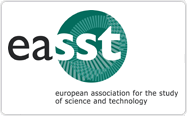Is the Patent System the Way Forward with the CRISPR-Cas 9 Technology?
DOI:
https://doi.org/10.23987/sts.70114Abstract
CRISPR-Cas9 technology is reshaping the way scientists conduct research in genetic engineering. It is predicted to revolutionise not only the fields of medicine, biology, agriculture and industry but, much like all revolutionary technologies of the past, the way humans live. Given the anticipated and already seen benefits of CRISPR-Cas 9 in different areas of human life, this new technology may be defined as a true breakthrough scientific discovery. The article presents several challenges connected with various dimensions of the CRISPR-Cas 9 patent landscape. The central argument is that today the biggest challenge is finding a intermediary way that ensures a balance between providing sufficient openness for the further progress of basic research in CRISPR-Cas 9 such as ‘niche’ areas of the latest genetic engineering and adequate intellectual property rights to incentivise its commercialisation and application. The article contends the endeavours by academic scientific institutions to arrive at short-term benefits of the new CRISPR-Cas 9 technology do not constitute such an intermediary way, especially when the CRISPR-Cas 9 patent landscape is viewed as part of a series of controversial bioethical discussions that have been underway for over 40 years.
Downloads
Published
Issue
Section
License
Copyright (c) 2020 Franc Mali

This work is licensed under a Creative Commons Attribution 4.0 International License.





